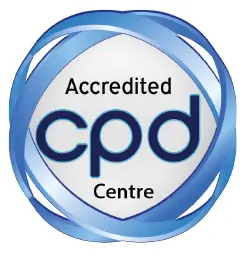Is This for You?
This course is for those who are studying for the AAT Level 3 Diploma in Accounting* qualification.
Award and Associated Qualifications


This course is for those who are studying for the AAT Level 3 Diploma in Accounting* qualification.

This course provides students with the skills required to produce statements of profit or loss and statements of financial position for sole traders and partnerships using a trial balance. In employment, students may be required to prepare a portion of, or all, the final accounts and this course will provide the theoretical knowledge needed. It will also allow students to understand how final accounts have been produced, either manually or automatically through use of accounting software.
You can study this course at your own pace and the format of the course means that you can study this in one of our local centres or at home to enable you to fit it in around your existing commitments.
Once you’ve successfully finished this training course you’ll be able to take the unit assessment that forms part of the overall AAT Level 3 Diploma in Accounting qualification.
There are seven elements to this course:
• Accounting principles underlying final accounts preparation
• Principles of advanced double-entry bookkeeping
• Procedures for the acquisition and disposal of non-current assets
• Depreciation calculations
• Period end adjustments
• The trial balance
• Financial statements
* Level 3 is the equivalent of Level 5 in Ireland and Level 6 in Scotland.
"*" indicates required fields
To develop the skills required to produce and interpret financial statements for a business.
Students should have gained the AAT Level 2 Certificate in Accounting qualification.
Wherever possible our training is tailored to your needs. The cost of our training programmes depend on the course(s) you choose and varies according to duration and breadth. Rest assured we have a number of payment options available to ensure the cost of training is affordable and can be worked alongside your other financial commitments. Common ways people fund their training include: –
Requesting funding from your employers needn’t be a daunting task. Many employers support and encourage their employees with their professional development and consider it a worthwhile investment to fund any training required.
What we can help with:
There may be the opportunity to apply for funded grants that can help towards the cost of training. These include the Skills Development Scotland ITAs and the ReAct programme in Wales. All schemes will have different terms and conditions that will need to be met in order to qualify for a grant and these are managed by each individual centre.
We’d recommend you speak to a Course Advisor in your local centre to find out whether they are registered to offer any such schemes and discuss your requirements further.
* Terms and Conditions apply. Speak to a Course Advisor for full information on the options available to you.
There are plenty of career progression options available and depending on aspirations, you could work towards a career as a Chartered Accountant, Finance Manager, or a Financial Controller.